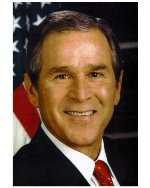 Think about how much we in the United States use, if not depend on, satellite technology.
Think about how much we in the United States use, if not depend on, satellite technology.
I’m not just talking about Dish Network. There are civilian and and military applications for satellites: communication, navigation, reconnaissance, etc. Think about GPS, smart bombs, satellite phones, weather maps, etc. It’s probably safe to say that satellite technology impacts us every day.
Now read this from the latest issue of The New Atlantis:
On January 11, 2007, a missile was launched from Chinese territory. It arced upwards into space to an altitude of about 537 miles, where it slammed directly into its target, an obsolete Chinese weather satellite. The target was destroyed, reportedly producing some 900 trackable pieces of space debris in orbits from 125 miles to about 2,300 miles and resulting in an increase of 10 percent in the total amount of manmade debris in orbit.
This demonstration of an anti-satellite weapon (ASAT) was just the latest in a series of tests of China’s space weapons program, and was a warning sign the United States should take very seriously. […]
“Far more than any other country, the U.S. depends on space for national and tactical intelligence, military operations, and civil and commercial benefits,†as Robert L. Butterworth, president of the space consultancy Aries Analytics, recently put it. This “provides a clear incentive for attacking American spacecraft.†Such an attack on American satellites would not have to be very extensive to be devastating—as long as it were well-planned. “Even a small-scale anti-satellite attack in a crisis against fifty U.S. satellites (assuming a mix of targeted military reconnaissance, navigation satellites, and communication satellites) could have a catastrophic effect not only on U.S. military forces, but [on] the U.S. civilian economy,†according to a recent report by China analyst Michael Pillsbury.
Chilling, isn’t it? The U.S. is, in fact, taking the threat seriously. Just today DefenseNews.com reports:
Five months after the Chinese proved they could destroy a satellite in orbit, U.S. lawmakers are responding with a surge in spending on Pentagon space programs aimed at protecting U.S. satellites. […]
“The Chinese anti-satellite test in early 2007 highlighted the vulnerability of our space assets,†House members said in a report on the 2008 Defense Authorization Act they passed in May.
News of China’s weaponization of space gets worse. The missile that was launched in January isn’t the only anti-satellite weapon at China’s disposal. They also have ground-based lasers that can jam or blind U.S. reconnaissance satellites, and there’s evidence they may be investing in space-based anti-satellite weapons.
No one is suggesting the Chinese are planning to take over the U.S. (yet, at least), but China’s neighbors are worried. There is speculation that jamming reconnaissance satellites could be a tactic China could use in an effort to take over Taiwan (to keep other countries, notably the U.S., in the dark until the takeover is well underway or even completed), and India is a bit wary of what these new weapons tests portend for the region, too. Such technology could act as a deterrent to any international action against China should they decide to, shall we say, annex some land.
Of course, the Chinese are outspoken opponents of the weaponization of space. That’s not surprising. What was it Sun Tzu said? “All warfare is based on deception.” Aviation Week reported on May 24:
Gen. Kevin Chilton, the head of U.S. Air Force Space Command […] said Chinese calls for a new space treaty even after their ASAT test were the definition of chutzpah. “The contradictions between China’s statements and its actions raise legitimate questions about the credibility of their declaratory policies, statements and security commitments,” said Air Force Maj. Gen. James Armor Jr., director of the National Security Space Office.
Don’t kid yourself — this is no small incident. It’s surprising to me that it hasn’t been more widely reported. I found one or two references to it in the Chicago Tribune, but none in the Journal Star’s archives. This could be the start of a significant arms race, although U.S. officials would be quick to pooh-pooh that idea.
Well, I don’t know a whole lot about the military, but I do know there is a strategic advantage to holding the high ground, and there’s no higher “high ground” than space. We can’t afford to let China hold it. So, maybe some don’t want to call it an emotionally-charged term like “arms race,” but I say we call a spade a spade. We might want to start rethinking that $76 billion trade deficit with China, too, while we’re at it.
美夢. (Sweet dreams.)

 President George W. Bush visited Peoria this morning, stopping by Sterling Family Restaurant for breakfast before heading over to Caterpillar in East Peoria to give a “State of the Economy” speech at Caterpillar’s building SS.
President George W. Bush visited Peoria this morning, stopping by Sterling Family Restaurant for breakfast before heading over to Caterpillar in East Peoria to give a “State of the Economy” speech at Caterpillar’s building SS.

